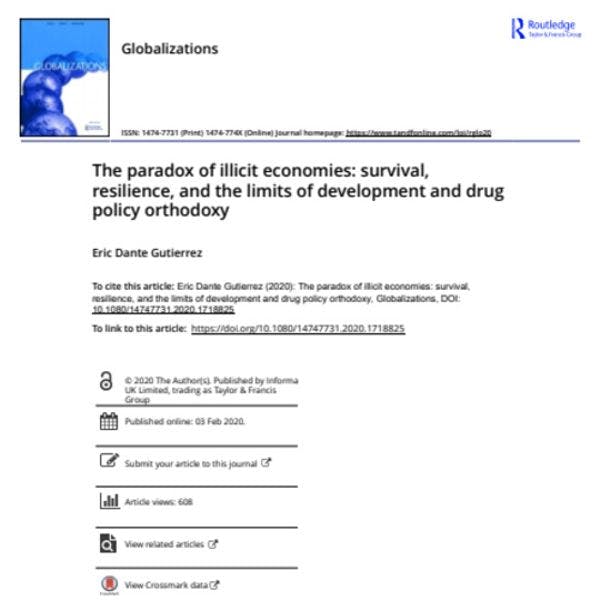La paradoxe des économies illicites : survie, résilience et les limites de l'orthodoxie en matière de développement et de politiques des drogues
Gutierrez analyse la participation des communautés dans les cultures illicites pour pallier à diverses formes de marginalisation, alors que cette participation les expose aussi à davantage de vulnérabilité. Pour en savoir plus, en anglais, veuillez lire les informations ci-dessous.
By Eric Dante Gutierrez
The illicit drug crops opium and coca are conventionally regarded as sources of instability, an ‘evil’ that breeds fragility and violence. Fragile states are supposed to be most vulnerable to their production and consequent harms. Yet by looking into the local contexts of the world’s leading opium and coca producers – Afghanistan, Myanmar, Colombia and Bolivia – these illicit crops are found to also be sources of stability, even drivers of economic growth. They enable marginalized communities and territories abandoned by the state to be reinserted into national and global markets. Within so-called ‘fragile’ and conflict-affected areas are displaced and dispossessed households adopting innovative and unorthodox strategies for coping and survival in changing and insecure environments. This paper maps out an approach, useful for examining the resilience that has emerged amidst violence and uncertainty in illicit-crop-producing territories, and which can hopefully tackle the continuing disconnect between drugs and development policy.
